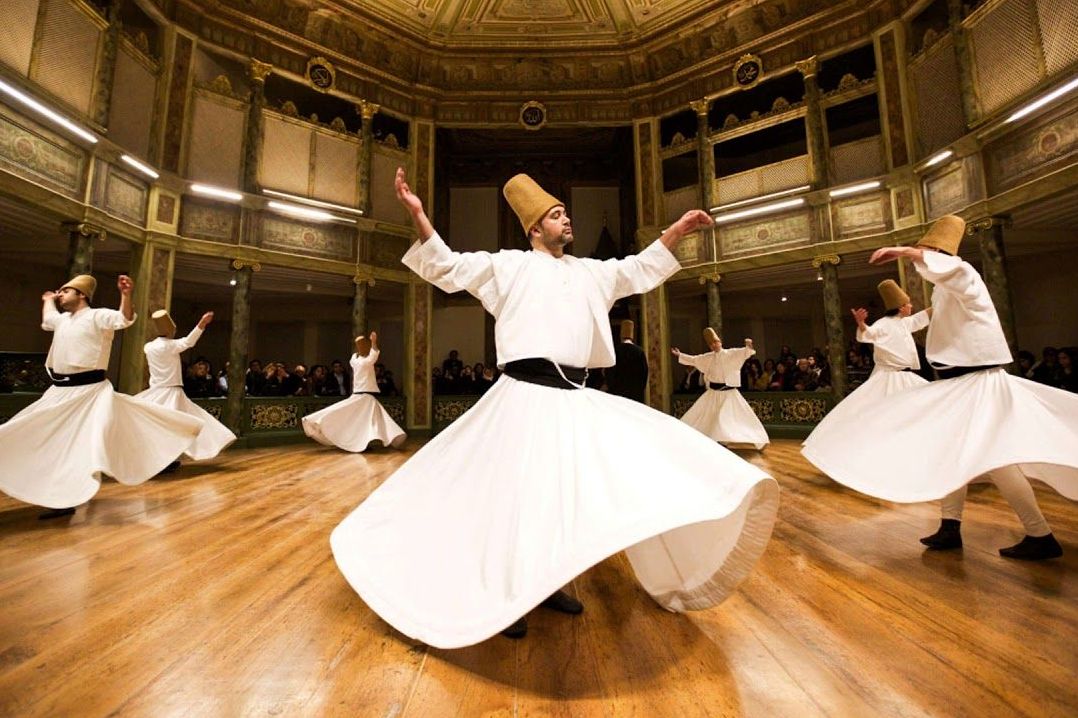Eastern music of Sufi: Qawali

Sufi did not want to lead their life locked up whether that be any restrictions emerging from the bounds of family, borders of one house or limitations of the country. They had to refuse from comfortable conditions overcoming hankering to down-to-earth things. In such a way roving life began being interpreted as the only possible way of spiritual development, freedom from attachments to the ordinary and customary items not to mention people. Sufi endued into the woolen clothes (suf) that looked simply and a bit coarse resembling floppily woofed cilice. How have we got aware of these facts? Certainly, we know everything concerning Sufi from the ancient songs considered as the only thing remained in the frailty of life after it was scattered to four winds. One of Sufi poets called Rumi talked about that in such a way: ‘On the Earth soul resides in the prison and it will stay there until it resides on the Earth’. Photo indiaprwire.com
Photo indiaprwire.com
Sufi Qawali is usual to divide into two types. One that is called as Rind praises free life restricted by one day. Line after line, Sufi were speaking that only leaving teeming activity behind and looking at life as it is applied to the nations offering philosophically estranged view on the world. According to their opinion, a person has a streak to live by the recollection of the past experience or devote himself to the plans of the future. The followers of Rind direction accepted the possibility of short date entertainments the main criteria of which was acceptance of the highest pleasure here and now. However, such a philosophy was maligned in the teaching of another movement called as Salik. This word meant ‘those going by mystic path’. The wanderers and seekers of spirituality followed the path of disavowal from the creature comforts, stood for the certain austerity in life, refusal from luxury and pleasures of the flesh. They performed divine vows and rituals framed in some word ‘rejoicing’ accompanied by different musical instruments while the leading role was given to the flute neya.
Before becoming a Sufi, the singer had to go through the special education which upon its complexity could be comparable with the modern university study. Sufi was expected to acquire knowledge of theoretical philosophy to perfection, get aware of the details of various cultures as well as speak several languages (such as Arabian, Persian, and Urdu). By the way, Sufi took a huge examination in the frame of which articulating more than five hundred poems so as to confirm the languages proficiency. Photo religionama.files.wordpress.com
Photo religionama.files.wordpress.com
In the environment of Sufi Qawali songs were considered as the spiritual practice because their texts included the implications about any given interspace of Earthly path conducted by a person who was likely to be willing to experience his inner world. Particularly, Qawali gives narrations about the necessity of repentance (tauba), abstinence (vara), refusal from material resources (zuhd), recumbency upon divine justice (tavakkul), humble endurance in the course of beggary (fakr), patience (sabr) and words of gratitude not only for the riches but also for the ordeals (shukr).
Among the ancient representatives of Sufi movement the history feels the traces of Jalaleddin Rumi (XIII century) influence. Rumi was the ruler of spiritual institution of dervishes. In his poems he espoused principles of human equality regardless of social background and material status. One of the most famous literature opuses of Rumi got a name ‘Divan’ that combined Eastern genres such as kasida, ghazal and rubais. In his chants Rumi advised to follow the path of Sufi. Which award was told to wait for the obedient followers? The performers of Qawali told about the spiritual harmony which meant a union of divine presence, love, appeasement, hope, passion, trust, calmness, and, finally, deep confidence in the own power.
In every poem which Sufi folded into the musical rhythms love was sounding. However, applications to the Beloved one did not imply the love appreciation addressed to the exact person. In such a way Sufi adverted to the highest forces calling for good power in the society because they believed that hatred and enmity came from the absence of love and wisdom inside the person. Rumi symbolically sang about that in Qawali narrating how four friends decided to buy the grapes. Honestly, these people were originated from the different countries where this fruit had own names whether it be ‘angur’, ‘uzum’, ‘stafil’, and ‘aynab’. Not willing to hear the reasons of each other, friends had a real quarrel. Definitely, this parable does not tell about the silly friends who were not able to find common ground in such a simple question but about the political and religious disagreements where each state wanted to watch over only own interests not thinking over other nationalities. That is why at the end of Qawali Rumi confirmed: ‘The war would finish at once / Though words are different, they hold the same truth, / However, only wise person / Could cease the awkward argument!’ Photo unikaz.asia
Photo unikaz.asia
Rumi set up a brotherhood of dervishes who were strangers and dancers in such a way giving birth to Sufi tradition to dance lively over live music. Meanwhile, dance in singing ritual Qawali had special rules. Particularly, it had to represent whirl with gradual raise of arms to the sky what symbolized the prayer of a human. Dervishes appeared in front of accidental spectators of religious performance being attained in the hats and black capes. While dancing performers threw capes down on the ground and dervishes remained in while robbing. Herein, black color was considered as the symbol of death while white color gained the meaning of soul resurrection that followed the physical downfall. Sufi regarded the combination of dance and melody as the most efficient way of emotional cleanup because music contained the most sincere and unpurchaseable application to human heart.
Cover photo travelcalendar.ru





















